Razor Blades (1968)
장르 : 드라마
상영시간 : 25분
연출 : Paul Sharits
시놉시스
In Razor Blades, Paul SHARITS consciously challenges our eyes, ears and minds to withstand a barrage of high powered and often contradictory stimuli. In a careful juxtaposition and fusion of these elements on different parts of our being, usually occurring simultaneously, we feel at times hypnotised and re-educated by some potent and mysterious force.

Mia recounts her most intimate confessions, uncensored, in her first approach to a totally new world of domination and submission.

시게이트 감옥에 수감된 트레버 슬래터리에게 잭슨 노리스란 기자가 인터뷰를 하게 된다. 트레버는 전세계적으로나 감옥 안에서나 유명인사가 되어서 나름 편하게 수감 생활을 한다. 자기 취향대로 꾸민 커다란 독실이 따로 있고, 죄수 중 덩치 큰 흑인 허먼이 그의 집사 노릇을 하면서 돌봐주며, 그를 추종하는 죄수들도 적잖게 있어 다른 죄수들이 함부로 그를 넘보지 못한다. 추종자들이 트레버에게 만다린 목소리를 내달라는 부탁을 하자, 빼는 척 하면서 결국 부탁을 들어주어 다시 만다린 연기를 보여주기도 하는데...

After discovering her mother’s dead body, Luz tries to protect her younger sister, Catalina, from the harmful reality by using fantasy and games.
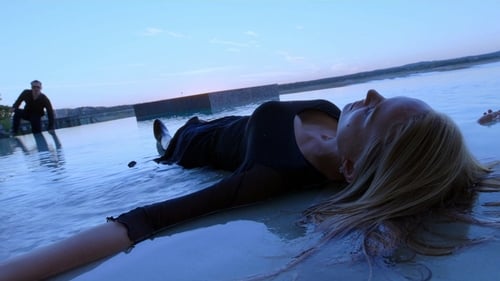
뮤지션 BV와 파예, 프로듀서 쿡은 음악을 공유하는 관계. 쿡의 파티장에서 만난 BV와 파예는 금세 사랑에 빠진다. 쿡과 파예는 한때 관계를 맺었지만 BV는 그 사실을 모른다. 세 사람은 멕시코 여행을 떠나 행복한 시간을 보내지만 여행 이후 세 사람의 관계는 틀어진다. 모든 것을 다 가졌고, 모든 것을 제 것으로 만들 수 있다 생각했던 쿡은 두 사람의 사랑이 너무 아름다워 자신이 추하게 느껴지는 경험을 한다. 쿡은 곧 식당에서 서빙하는 론다를 만나 결혼한다. 그 결혼은 자신이 모든 것을 베풀 수 있는 능력을 가진 남자라는 것을 증명하기 위한 행위처럼 보이는데...
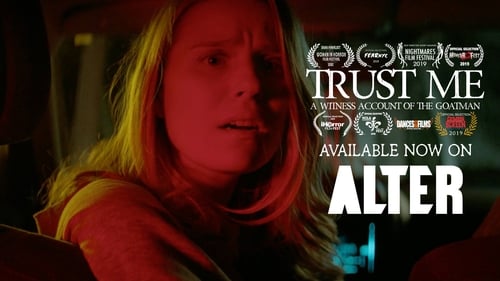
A folk horror movie about a woman who follows her boyfriend into the woods for a romantic surprise only to find something far more sinister. Inspired by thousands of witness accounts documenting the ongoing phenomenon of a certain species of shape-shifting creature in the forests of North America.

특별한 날이 없다고? 트롤 여왕 파피는 문득 깨닫는다. 트롤은 매일이 새로운데, 버겐은 매일이 똑같다는 사실! 버겐을 위한 홀리데이 만들기 대작전은 그렇게 시작됐다.
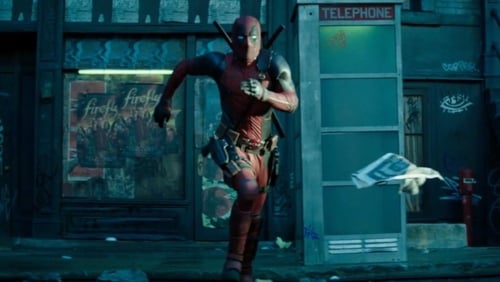
Deadpool sees an opportunity to save the day, but it doesn't go entirely as planned.

A kid begs to stay home while his older sister runs to the store. After she leaves, he wishes he would have gone because he doesn’t feel comfortable being at home in the dark as strange things start to happen...

스노글토그에 히컵과 투슬리스, 라이트 퓨리와 새끼들까지 모두 버크 섬에 모인다

A very old woman wants to have dinner with her friends. As they are all dead, the butler has to play the role of every guest.

Margo, Edith, and Agnes spot an ice cream truck. The three of them go after the truck but Agnes falls as she attempts to pedal to the truck. The Minions, seeing her so upset by this, decide to build her a unicorn-themed motorcycle. Agnes goes for a little ride around town.
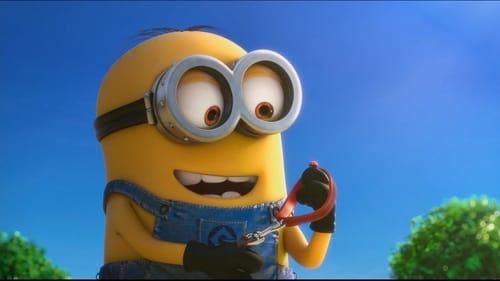
A Minion, seeing many owners walk their dogs, wants a puppy of his own. He tries to leash a ladybug but fails. Luckily, a UFO that sweeps away the ladybug somehow agrees to become a Puppy.

The residents of Hotel Transylvania find their world turned upside-down when youngster Dennis gets a surprise monster-sized pet.
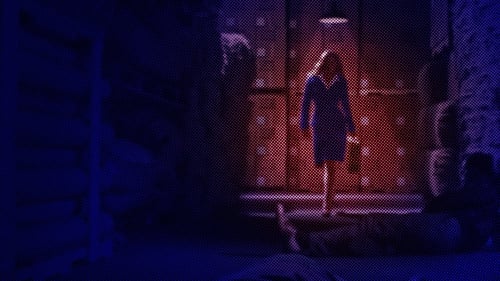
캡틴 아메리카가 레드 스컬과 싸우고 그의 전투기 '발키리'를 그린란드에 추락시킬 때 페기와 스티브의 교신 장면이 나온다. 스티브는 불시착하여 연결이 끊어지고, 페기는 울먹이며 스티브를 부른다. 스티브가 그린란드에 불시착한지 1년 후, 페기 카터는 S.S.R의 뉴욕 지부에서 근무하고 있었다. 하지만 지부장 플린 요원은 페기를 현장에 투입시키지 않고 암호 해독 같은 사무직 업무를 시키고 있었고, 페기는 플린에게 이에 대해 따분하다며 불만을 표한다. 어느 저녁, 페기는 분석한 자료를 동료에게 건네주고 난 뒤 그 밑에 놓여있던 스티브의 훈련병 시절 사진을 다시 발견한다. 그 때 플린이 페기에게 자신과 남성 요원들이 회식할 테니 책상의 데이터들을 정리하고 퇴근하라고는 술집으로 자리를 뜬다. 페기가 못마땅한 표정으로 이를 정리하고 있을 때, 지령을 알리는 경보음이 울리는데...

치타우리의 뉴욕 침공 후, 베니와 클레어란 커플이 치타우리의 무기를 습득하여 이를 조작하는 방법을 알게 된다. 이를 이용해 전국적으로 강도짓을 하는 둘을 S.H.I.E.L.D에서 주시하고 있었다. 재스퍼 시트웰은 이들이 일으킨 강도 사건 4건을 직접 조사했고, 필릭스 블레이크는 감시 카메라 자료를 모아 이들을 분석하고 있었다. 블레이크는 시트웰이 이 사건을 안이하게 여긴다고 불만을 표했고, 시트웰은 그에게 자네는 앉아서 비디오 화면이나 모으지만 현장에서 뛰는 요원들의 고생은 모른다며 전임자가 떠나 새로 발령되게 되었다 말한다. 이에 블레이크 요원은 버릇 때문에 욱했다며 사과한다. 시트웰은 이 커플에게서 무기를 회수하고 이들을 잡아오는 명령을 받게 되는데...
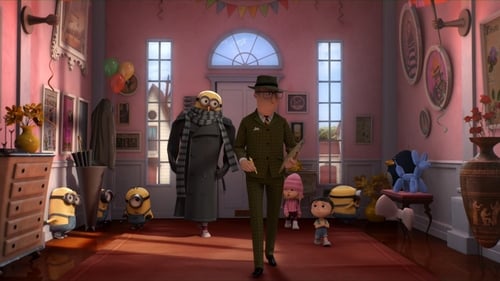
A social worker is coming to Gru's house to check if it's suitable for children. Margo, Edith, Agnes and the Minions must take care of the situation.
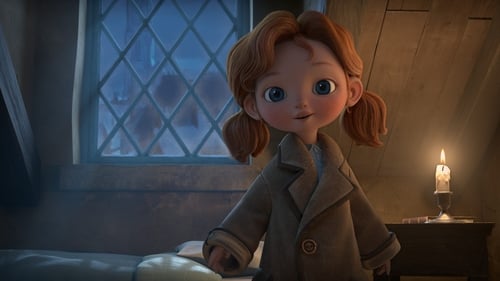
가난한 소녀 안젤라가 크리스마스 이브에 교회에서 아기예수 인형을 발견, 추울까봐 따뜻하게 해주려고 집으로 훔쳐오면서 벌어지는 에피소드로 구성된 3D 에니메이션 작품
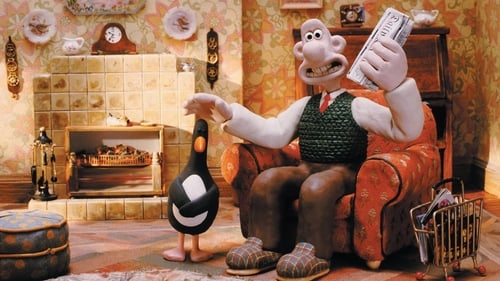
런던 근교. 엉성한 발명품만 만들어내는 발명가 월레스는 생활비를 충당하기 위해 창문닦이 서비스를 하고 있다. 월레스의 영리하고 충직한 애견 그로밋은 전자공학에서 도스토예프스키까지 읽는 식견 높은 개다. 그로밋의 생일을 맞자 월레스는 전자바지를 선물한다. 첨단 공법으로 만든 전자바지는 그로밋의 산책은 물론 무슨 일이든 척척 해내는 만능바지. 그러나 이 선물 제작에 많은 돈을 쓴 나머지 생활비가 부족하자 하숙을 놓게 된다. 광고를 보고 세를 든 동거인은 야비한 성격의 수배범 펭귄 맥그로우. 자신의 위치를 빼앗긴 그로밋은 가출을 하기에 이르는데...

The U.S. Army Signal Corps Pictorial Division made this short documentary shortly after the end of WWII to look at the after-effects of the atomic bombs dropped on Hiroshima and Nagasaki. There is no credited crew or cast.

Europe 1900 (1968) tells about the history of luxury while problematizing memory and our images of the past.

A film about three of our leading visual artists, Bhupen Khakar, Nalini Malani and Vivan Sundaram. It takes, as its point of departure, a glass mural on which all three were working, then zeros into each of them. It links them to their physical and mental worlds through cinematic devices like associative sounds, variable light and montage. Compositionally, the visuals aim to link with the styles of each artist, as well as the larger narrative traditions of India.

This film was made by the U.S. government during World War II to show its young servicemen the results of "fooling around" with "loose women" overseas. Actual victims of such sexually transmitted diseases as syphilis and gonorrhoea are shown, along with the physical deterioration that accompanies those diseases.

In this CBS News production broadcast on Thanksgiving 1960, Edward R. Murrow points out the plight of migrant farm workers in America. Topics range from the harsh living conditions, endless travel, low wages, and poor opportunities for their children.

The story of a poor girl who leaves her starving family and sheep for a more prosperous village. Her grandfather finds her and tries to convince her to return to her home.

Shooting in 1966 without script, story, or any narrative preconception, Nelson and Wiley created a masterwork of ‘60s independent cinema. The Great Blondino follows an anachronistically attired young fellow as he navigates a beguiling, sometimes troubling world with a curiosity that opens us wide to the filmmakers’ inspired, freeform vision. In many ways, the wonder of Blondino may echo the excitement of invention and exploration that Nelson and Wiley experienced in the making of the film. Utterly exuberant and freed from rote cinematic restriction, it embodies an artistic rigor and direction that also prevents it from ever seeming too unhinged. An incredible feat of tightrope walking. —Mark Toscano

A documentary overview of silent cinema pioneer Edwin S. Porter.

"TESTAMENT is James Broughton's exquisite self-portrait. A major figure in avant-garde filmmaking and poetry since the 1940s, Broughton views his life and life's work with irony, charm, humor, and a combination of joyous self-love and gentle self-depreciation. Scenes from his earlier films mix the elements of humor, magic, slapstick, melodrama, and romance which mark his aesthetic. A plethora of rich personal symbols is woven throughout the film, tied together by verbal games, Zen poems, anecdotes, songs, a child's prayer, dreams, and visions." - Karen Cooper "James Broughton's TESTAMENT is one of the most remarkable films ever produced within the American independent cinema. It is the most moving and most sublimely detached of the recent trend of filmic autobiographies - by Jerome Hill, Jonas Mekas, and Stan Brakhage, to name only the masters, and Broughton's peers." - P. Adams Sitney "A beautiful, important, mysterious work." - Amos Vogel

A leading director of the Czech film renaissance provides a philosophical meditation on life and death, set amidst complex hospital apparatus and the sadness, hope, or resignation of the patients. Existentialist rather than optimist, the approach is one of humanistic atheism, accepting death as part of life. Interviews with doctors and nurses explore their outlook; all speak of death as a fact, without either sentimentality or religiosity. The studied objectivity of the film only imperfectly hides an intense emotionality.

A former inmate of the Auschwitz concentration camp, accused of being a kapo, is serving a life sentence. From the monologue to the camera, we learn the story of an average man destroyed in terrible times.

Taken from Boccaccio's Decameron, this lovely puppet film tells the bawdy story of the beautiful young Venetian lady who confesses her sinful passion for the Archangel Gabriel to a lustful monk, who promptly impersonates him in her bedroom with predictable results. Amidst the film's ribaldry, the hypocrisy and false piety of the monk are mercilessly mocked.
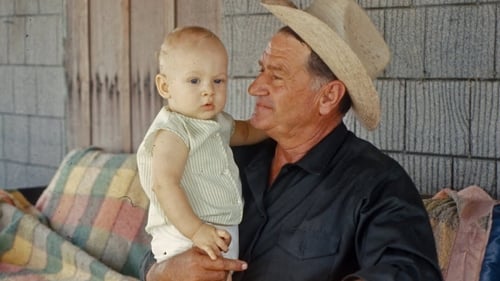
Another short documentary of "Real Food, Roots Music, and People Full of Passion for what they do!", Spend It All is Les Blank's spirited look at the French-speaking Cajun community of southwest Louisiana.

Feature film.

Shot in high-definition video using rear-screen process plates from classic Warner Bros. films noirs. A young man (in color) searches for his past through black-and-white scenes from "The Big Sleep," "Mildred Pierce," and "Strangers on a Train."

Universal Citizen is a multifaceted personal travelogue that brings us to a real Universal Hotel, in Guatemala, and to the same public square in Siena that appears at the beginning of Universal Hotel; at the center of the film are Thompson's off screen meetings with a Libyan Jew and former Dachau inmate who works as a smuggler in Guatemala and refuses to be photographed. (Jonathan Rosenbaum)

A short documentary that explores a blue-collar community’s growing unease with the Vietnam War. It was produced in response to President Nixon’s famous November, 1969 speech when he contrasted the unlawful and vocal anti-war protesters to the respectful “silent majority” who were in favor of remaining in Vietnam to fight communism. This film explores the thoughts and opinions of the “silent majority” represented by the folks living in the Garfield Ridge neighborhood on the southwest side of Chicago.
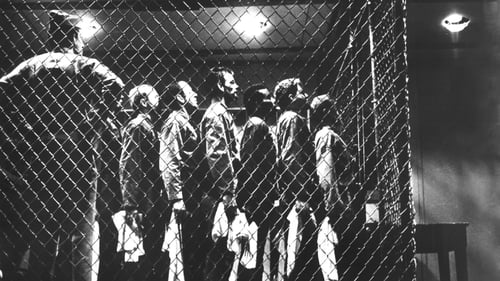
An ultra-realistic depiction of life in a Marine Corps brig (or jail) at a camp in Japan in 1957. Marine prisoners are awakened and put through work details for the course of a single day, submitting in the course of it to extremely harsh and shocking physical and mental degradation and abuse.

A surreal journey of a displaced spirit as he wanders in the interminable darkness through the temporal landscape of a quaint and isolated feudal-era fishing village. Guided by a series of faintly illuminated rooms, the wandering spirit comes upon ancient souls who take on physical forms as they recount their personal stories of daily existence, loss, and tragedy in the peasant community. Intrigued by his initial visit to a curiously distracted elderly woman, the spirit returns to her home in order to ask a fundamental question - "What is happiness?" - an existential query that is innocently answered with innate humility and accepted unknowingness.






















